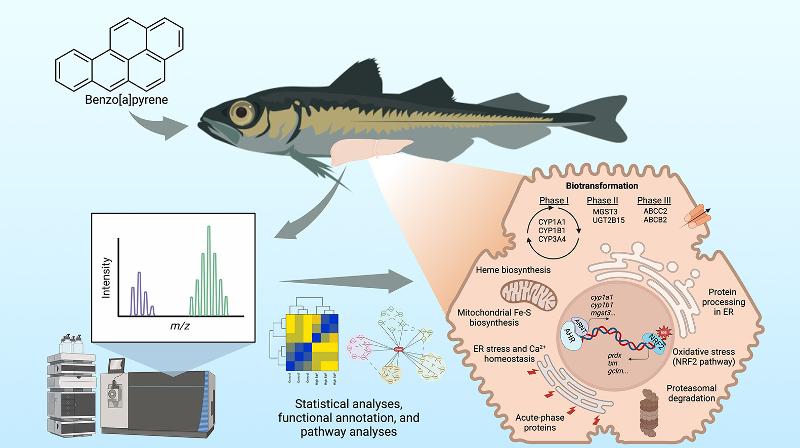New Paper! First proteomic study on polar cod
A newly published study by Odd André Karlen et al, in Science of the Total Environment has provided insights into how Arctic pollution affects a keystone fish species, the polar cod (Boreogadus saida). Researchers conducted the first comprehensive proteomic analysis of the polar cod liver, focusing on the effects of dietary exposure to benzo[a]pyrene (BaP), a toxic polycyclic aromatic hydrocarbon (PAH).
The study found that BaP exposure triggered significant changes in liver protein expression, activating the aryl hydrocarbon receptor (Ahr) signaling pathway and leading to oxidative stress, protein misfolding, calcium homeostasis disruption, and signs of inflammation. These findings highlight the vulnerability of Arctic species to industrial pollutants, emphasizing the need for environmental monitoring and regulation as human activities expand in polar regions.

The research provides crucial data for assessing the ecological risks of PAH contamination in Arctic waters. The full article is available here.